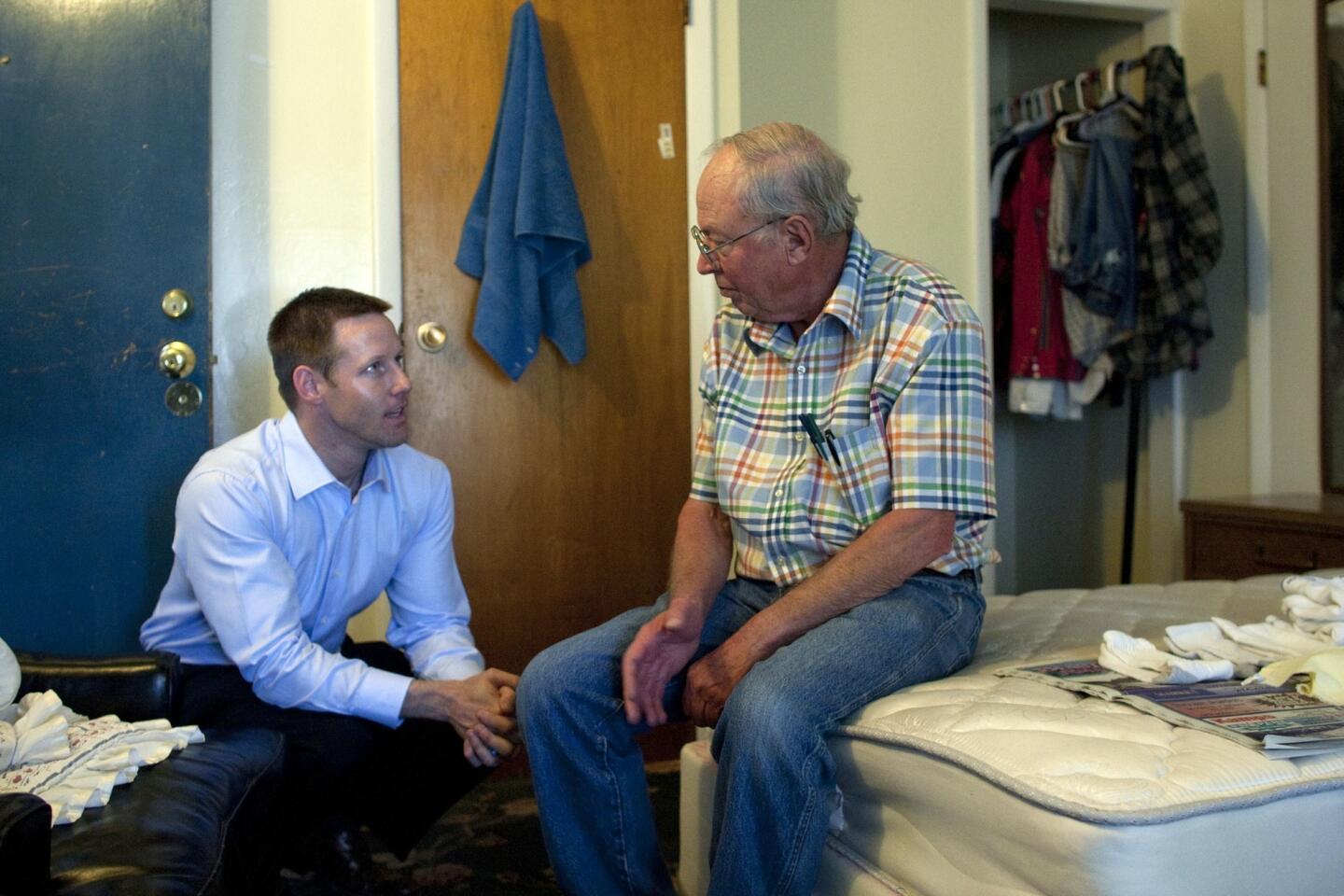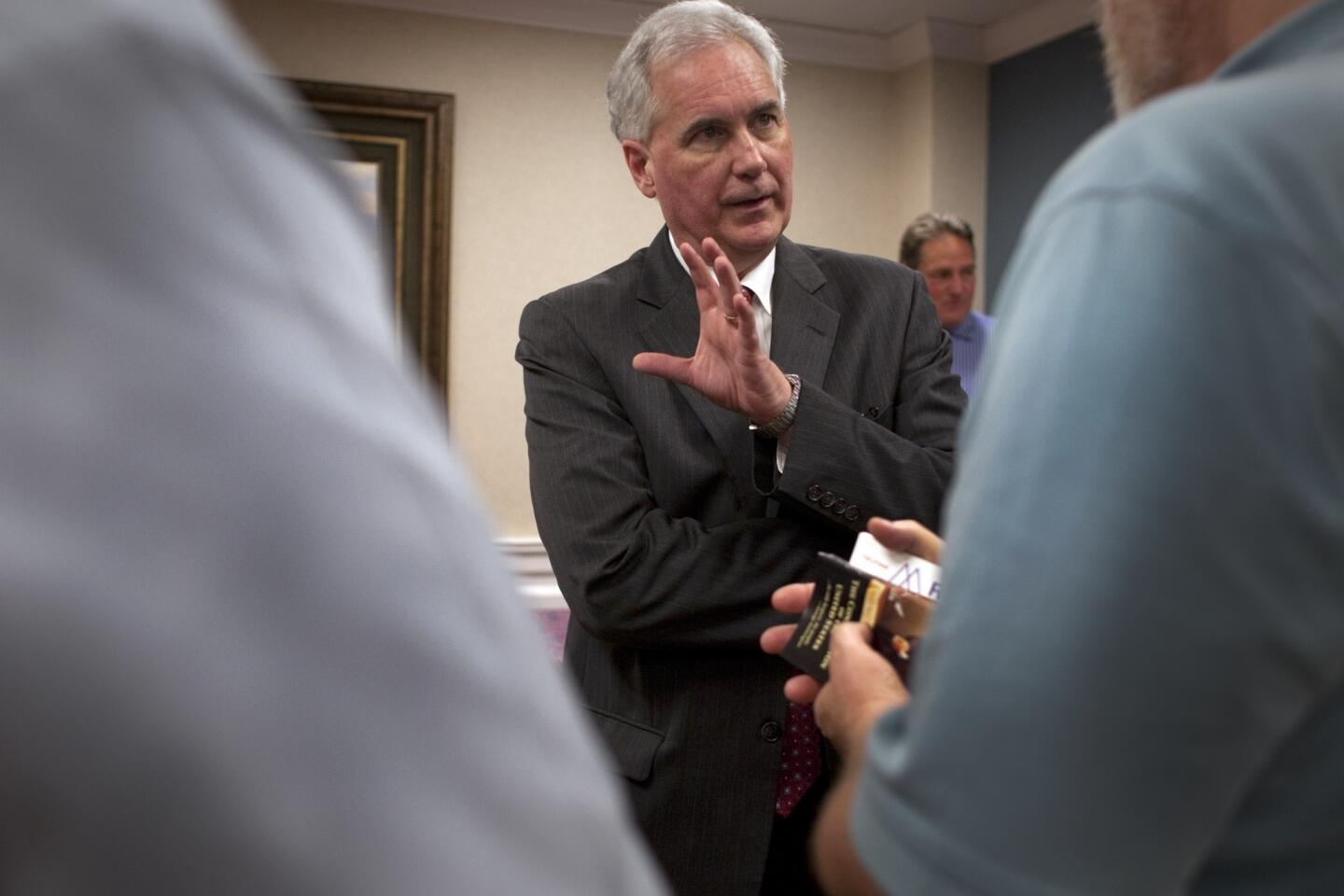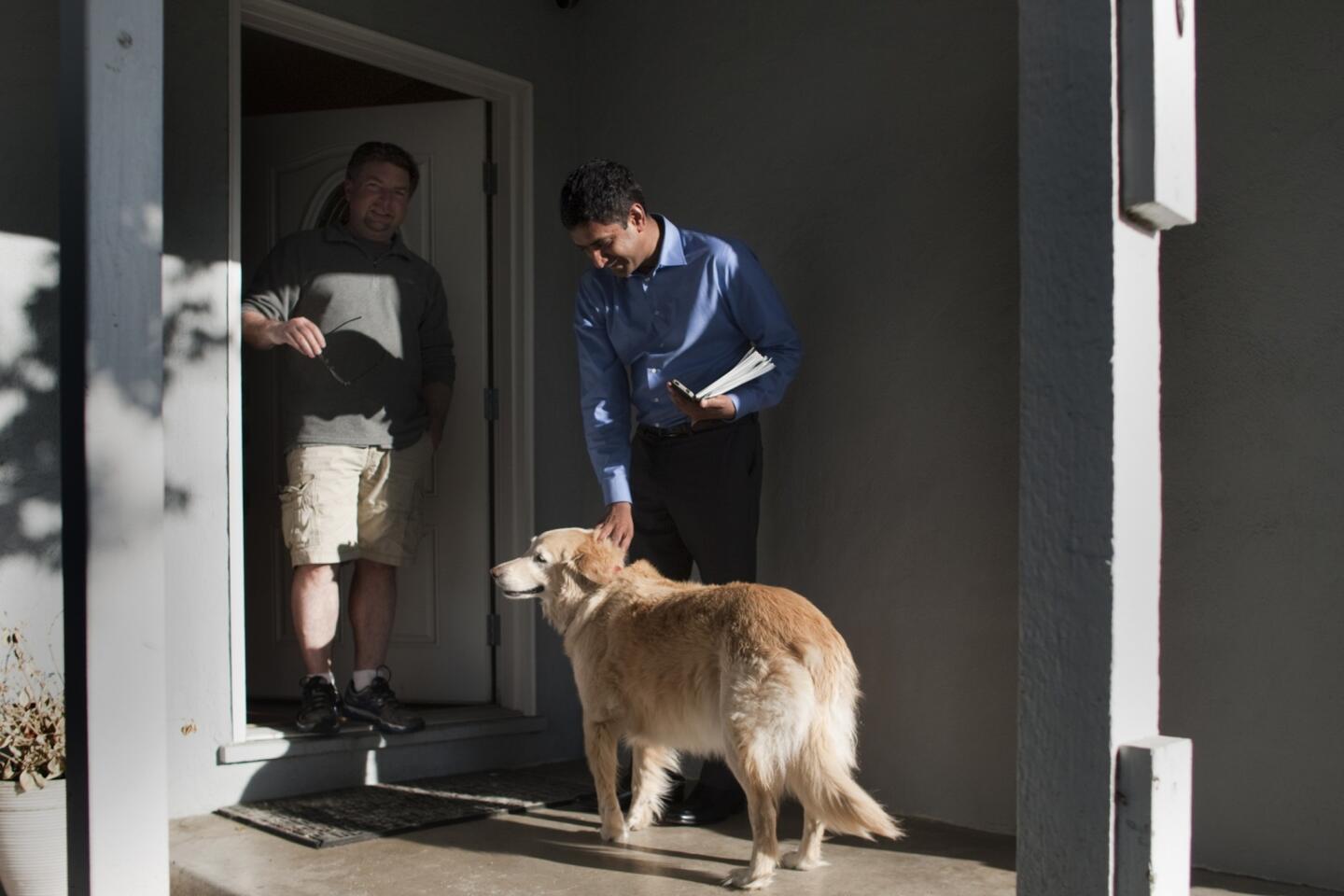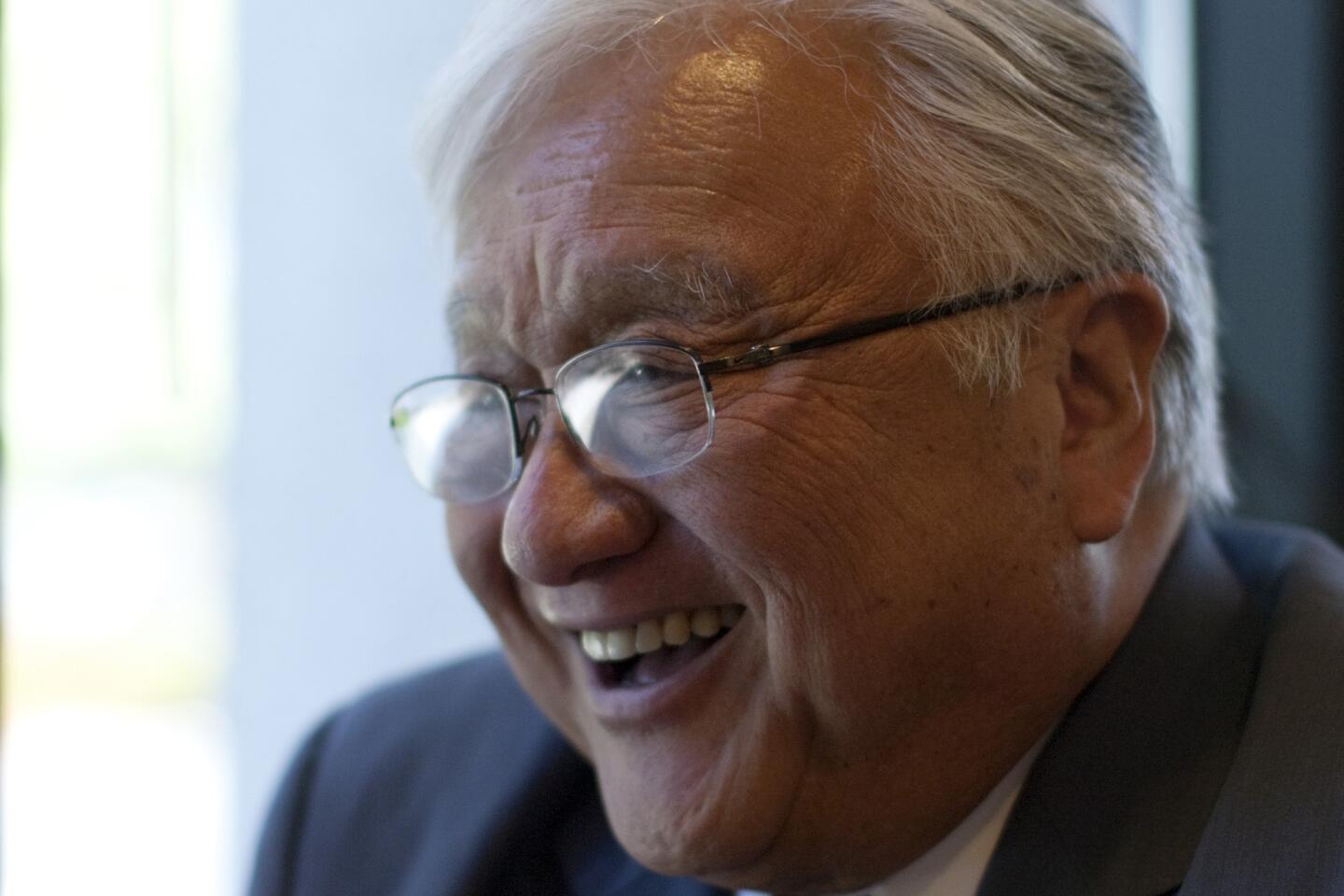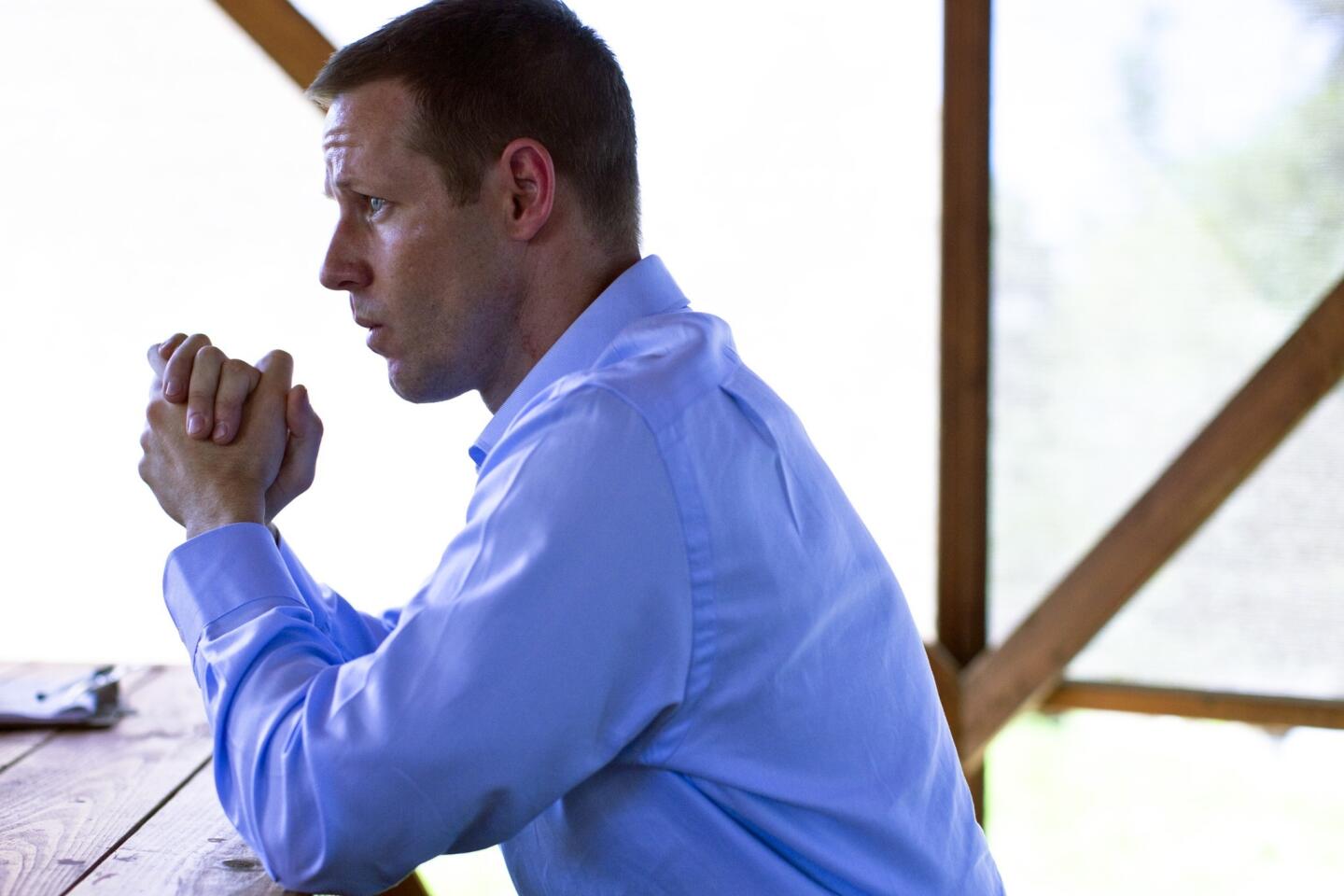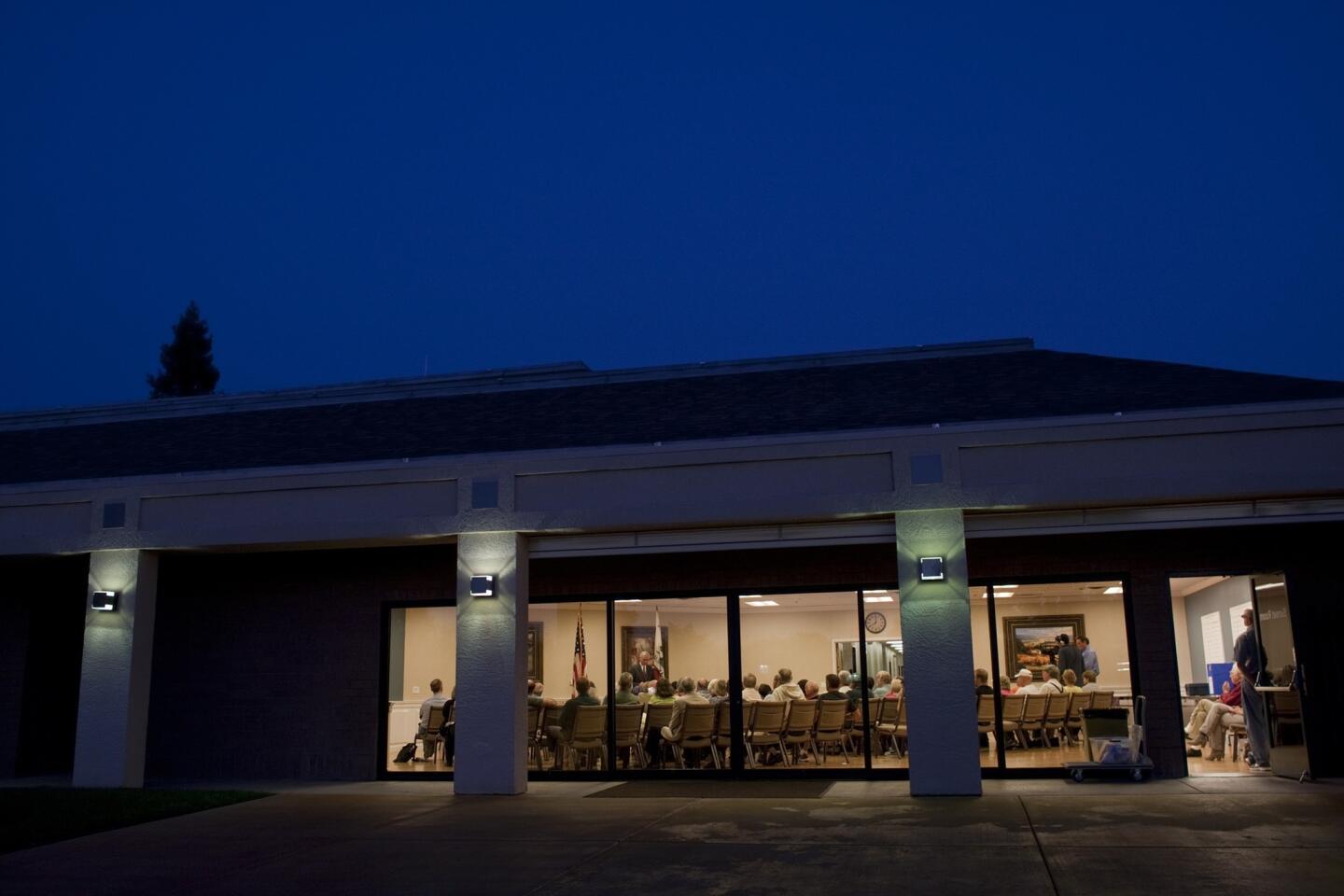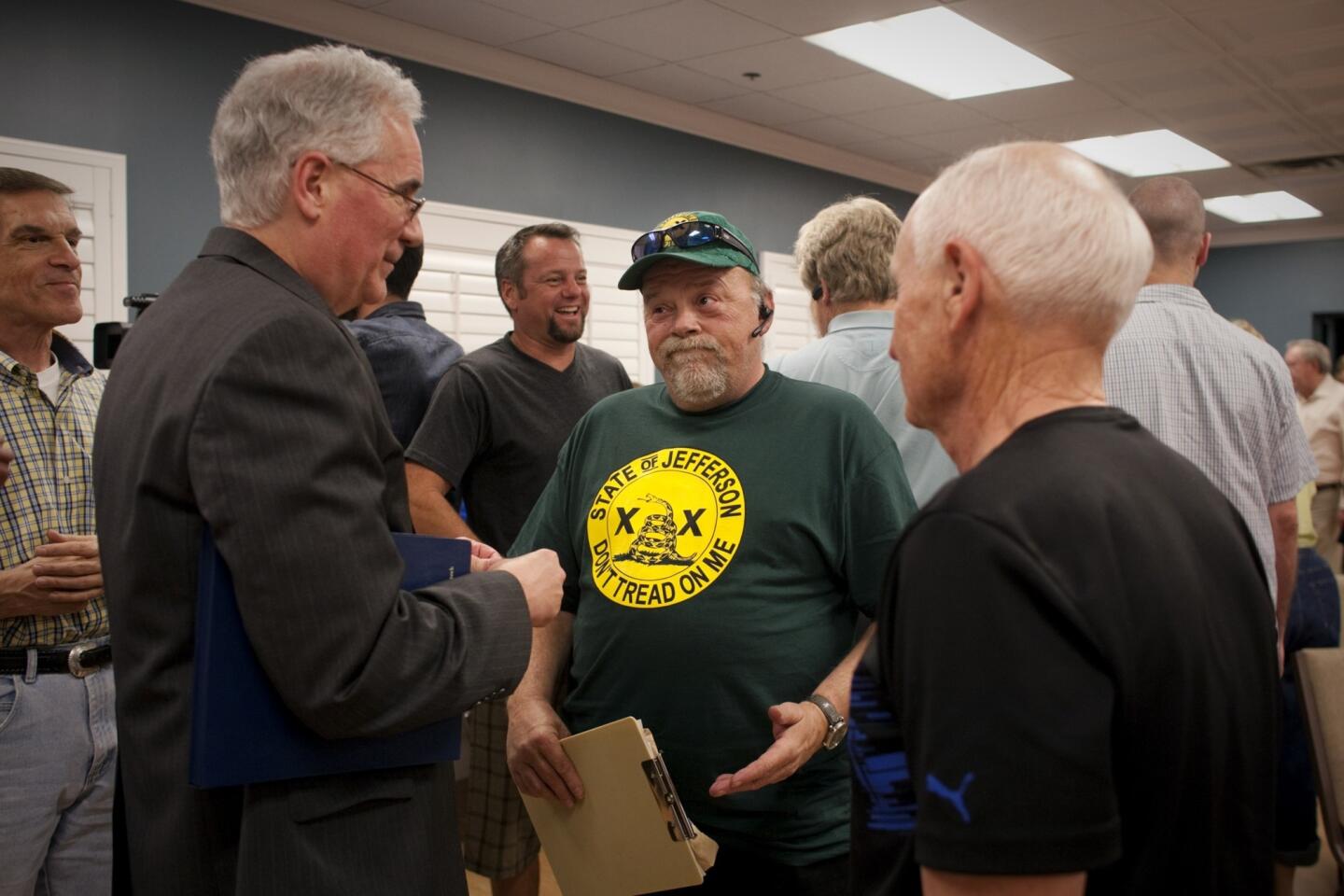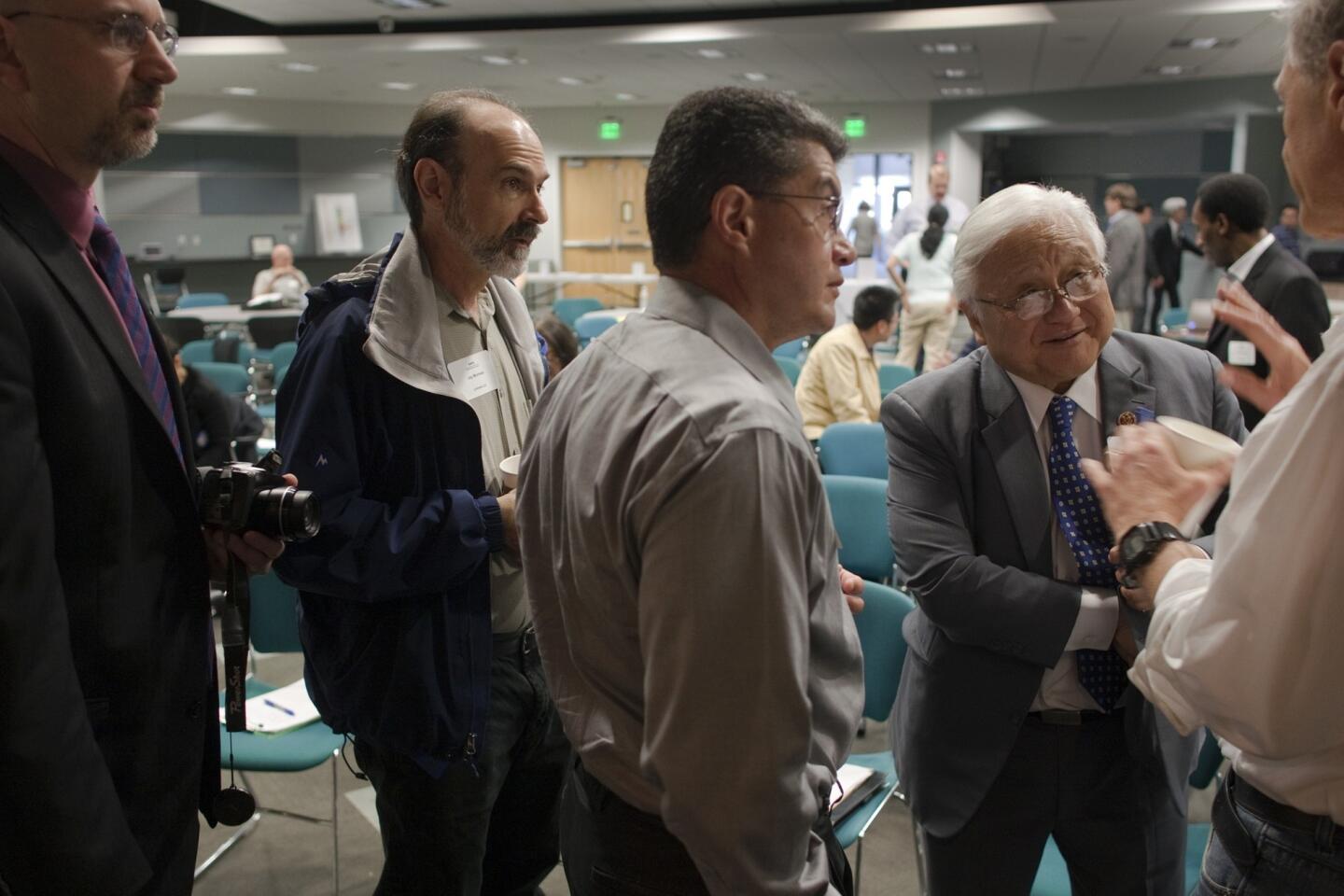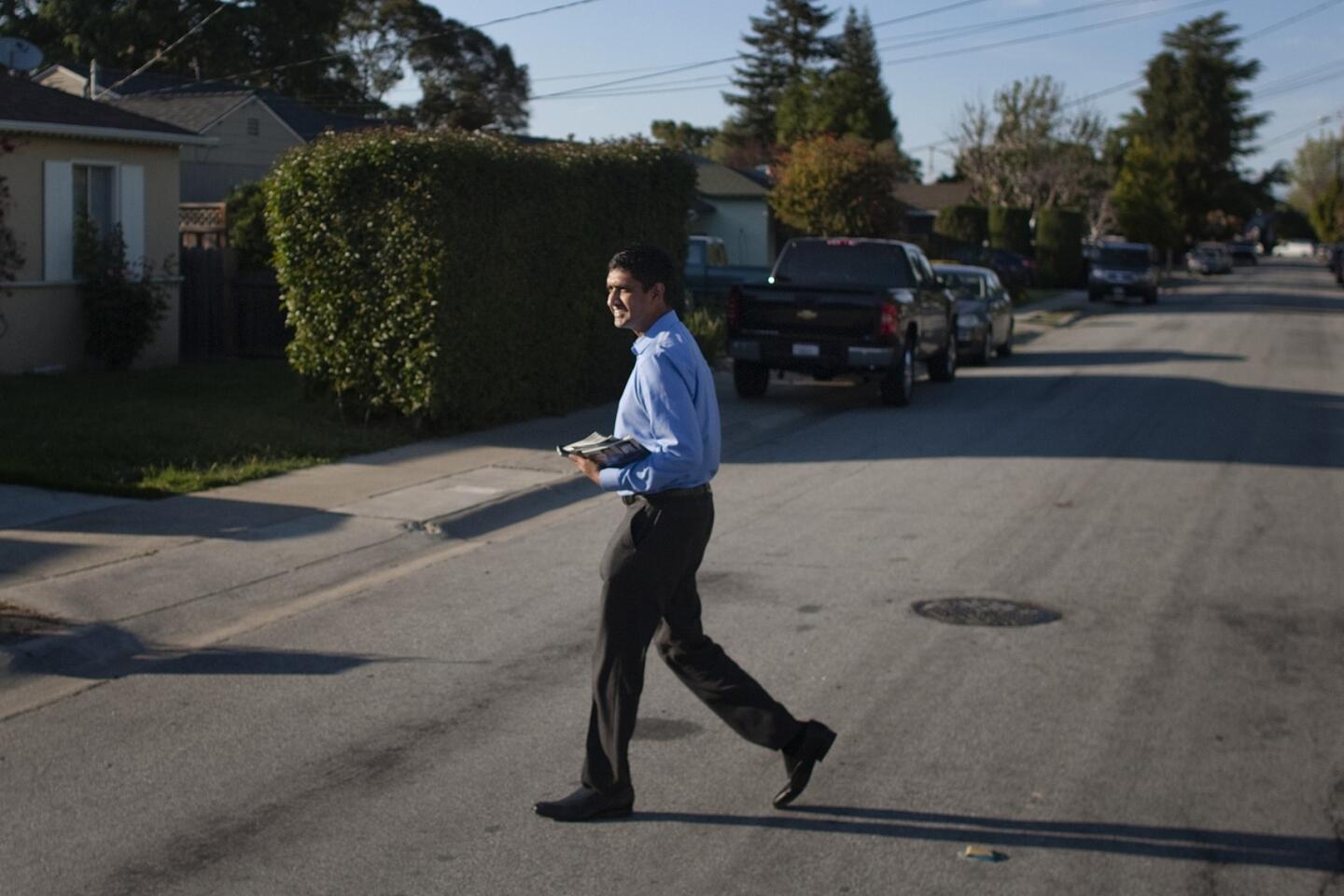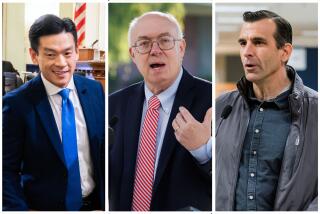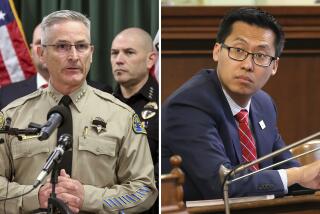Reps. Mike Honda, Tom McClintock find reelection no longer a lock
SUNNYVALE, Calif. — Rep. Mike Honda is a champion of liberal Democrats, Rep. Tom McClintock a rock-ribbed Republican.
Both are faithful to their parties’ orthodoxy and represent Northern California districts heavily tilted in their favor. In the past, the two — with 60 years in elected office between them — would have coasted to reelection, the field cleared by their longevity, stature and party blessing.
Not anymore.
The party primary is gone in California, except for presidential contests, and with it the parties’ ability to protect their stalwarts. Today, Honda and McClintock find their jobs threatened by younger challengers in primary races that are among the most closely watched in the state — generational battles made possible by California’s relatively new election rules.
In the “jungle” primary, “young Turks are going to go after some of these old boys in their own party,” said elections analyst Allan Hoffenblum.
Moreover, both McClintock and Honda are being challenged from the middle — something of an anomaly, as attacks from within typically occur when an incumbent is considered not conservative or liberal enough. In California’s new political landscape, primaries are no longer about appeasing the most strident wings of either party.
In Sunnyvale, just outside of San Jose, 37-year-old Ro Khanna spent a recent evening knocking on voters’ doors under a cloudless sky. Over and over, the intellectual-property attorney said he did not think Honda was a bad man, just that the district needed better representation. So he’s running against the 13-year veteran of Congress.
“The people here in Silicon Valley and this district really want someone who has a focus on the economy and Americans’ competitiveness in the global economy.... That’s not been an area of interest or strength for” Honda, Khanna said.
Boosted by support from technology company executives, Khanna had raised $3.7 million through mid-April, nearly double what Honda has collected. Veterans of President Obama’s campaigns are running Khanna’s effort.
Khanna’s first political experience was canvassing for Obama — then a lecturer at the University of Chicago, where Khanna was an undergraduate — who was making a state Senate bid. As president, Obama appointed Khanna deputy assistant secretary of commerce.
Honda, 72, has refused to debate Khanna, saying he objects to debates that do not include all candidates (two Republicans are also running). Honda notes that he will attend a candidate forum Saturday and plans to debate whoever is his opponent in the November contest.
Honda is lauded by liberals for his work to expand Social Security benefits and his bills promoting social justice. He is backed by the Democratic establishment, including Obama and House Minority Leader Nancy Pelosi.
The Progressive Change Campaign Committee, a group that promotes liberal candidates and issues in Democratic primaries, has pledged to help raise money for Honda and recruit volunteers from its nationwide network.
“We see the reelection of Mike Honda as one of the most important strategic imperatives for progressives nationally,” said Adam Green, the group’s co-founder.
Honda boosters say the congressman puts the needs of his district ahead of any need to take credit for accomplishments, such as his push for 2003 legislation that created a $4-billion federal investment in nanotechnology — dear to Silicon Valley companies — and securing $900 million in federal funds to expand the BART transportation system in the Bay Area.
“It’s not only writing bills and getting your name on them, but getting results,” Honda said as he swirled a spoon through a bowl of chicken gumbo soup in a San Jose diner. “Some may say I’m out of touch with tech, but I think my record shows I’m not.”
Honda typically acts indifferent to the challenge that Khanna presents. “This is America, so people have a right to run,” Honda said.
But when a supporter interrupted to shake hands with him and mentioned Khanna’s name, the congressman said levelly, “Ro chose to do this,” and noted that Khanna had previously eyed other Democratic incumbents.
In 2004, when party primaries made challenges of incumbents from within nearly impossible, Khanna ran unsuccessfully in a Democratic primary against 12-term Rep. Tom Lantos in the Bay Area. Two years ago, Honda helped Khanna raise money when the younger man raised the prospect of a bid for 20-term Democratic Rep. Pete Stark’s seat if the incumbent retired.
“And now me,” said Honda, whose home landed outside the district when new boundaries were drawn.
McClintock, 57, is clearer about his disdain for his main challenger, Art Moore, 36. He calls Moore, an Army veteran with no political resume, a “Manchurian candidate” recruited by moderate Republicans and Democrats.
“If they are successful, we can expect that these tactics will be turned against every conservative legislator and congressman left in California,” McClintock wrote in a recent fundraising email.
Indeed, proponents of the new system had argued it would increase moderation, and the political parties opposed it because it decreased their strength.
Moore entered the race late, and the strength of his candidacy is unclear, though he is being advised by a top strategist to former Gov. Arnold Schwarzenegger and has snagged a handful of bipartisan endorsements. One other candidate, not registered with a political party, is also running.
McClintock has the clear financial edge, having raised nearly $790,000 through mid-April, while Moore had raised less than $32,000.
Conservative groups plan to step into the race if McClintock appears to be in trouble.
“We’re watching it very closely,” said Russ Walker, national political director for the FreedomWorks for America “super PAC,” a tea party group.
McClintock said Moore’s voting record, or lack thereof, will be his downfall.
“Once people realize Art Moore has never voted in his life, and never even bothered to register to vote until January, this election is pretty much over,” he said.
McClintock’s remarks came after he gave a history-laced speech about modern threats to the Constitution at a tea party meeting in Rocklin, near Sacramento.
Moore, who said he was deployed overseas three times while in the military, asserted that he and other Army officers did not vote because they wanted to maintain neutrality if called to advise elected leaders.
“As soon as the officer corps and Army leadership is viewed as political and biased, then it really hurts our credibility and can negatively affect our national security,” Moore said, wearing a gold West Point class ring, during a visit to a shelter for homeless veterans in the Sierra foothills community of Jackson.
Moore was a businessman and consultant in Washington, D.C., before returning to Northern California, where he grew up and gave the valedictory speech at Placer High School. He contrasts his deep ties to the district with those of McClintock, who has never lived in it while representing it.
Describing himself as fiscally conservative and socially libertarian, Moore said McClintock has failed to put his district’s needs ahead of his rigid ideology. He pointed to McClintock’s vote last year to shut down the federal government, which hurt a district that is home to several national forests and parks, including Yosemite.
A large portion of the district “needs the federal government being open for business,” Moore said.
McClintock, who earns the highest ratings from conservative groups for his work in Congress, said he is proud of his unwavering principles.
“I have spent a career defending and protecting the constitutional principles that built this country — individual liberty, constitutionally limited government, personal responsibility,” he said, “and I will continue to do so in and out of government as long as I draw breath.”
More to Read
Start your day right
Sign up for Essential California for news, features and recommendations from the L.A. Times and beyond in your inbox six days a week.
You may occasionally receive promotional content from the Los Angeles Times.
